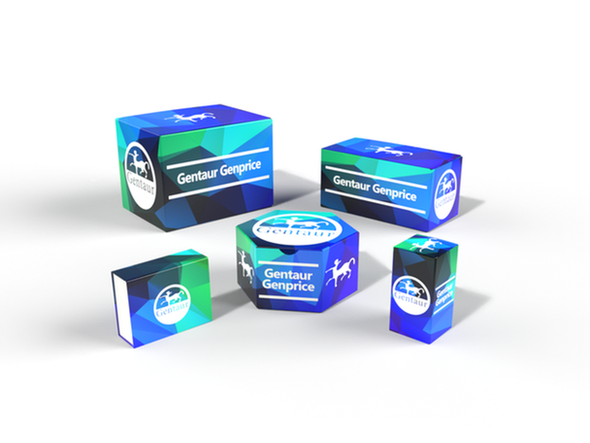740
Mouse Antigen KI-67 (MKI67) ELISA Kit | AE63310MO
- SKU:
- 740-AE63310MO
- Availability:
- Usually ships in 5 working days
Description
Mouse Antigen KI-67 (MKI67) ELISA Kit | AE63310MO | Gentaur UK, US & Europe Distribution
Species Reactivity: Mouse (Mus musculus)
Abbreviation: MKI67
Alternative Name: RP11-380J17.2; KIA; proliferation-related Ki-67 antigen
Application: ELISA
Range: 0.312-20 ng/mL
Sensitivity: 0.122 ng/mL
Intra-Assay: ≤4.5%
Inter-Assay: ≤7.8%
Recovery: 0, 96
Sample Type: Serum, Plasma, Other biological fluids
Detection Method: Sandwich
Analysis Method : Quantitive
Test Principale: This assay employs a two-site sandwich ELISA to quantitate MKI67 in samples. An antibody specific for MKI67 has been pre-coated onto a microplate. Standards and samples are pipetted into the wells and anyMKI67 present is bound by the immobilized antibody. After removing any unbound substances, a biotin-conjugated antibody specific for MKI67 is added to the wells. After washing, Streptavidin conjugated Horseradish Peroxidase (HRP) is added to the wells. Following a wash to remove any unbound avidin-enzyme reagent, a substrate solution is added to the wells and color develops in proportion to the amount of MKI67 bound in the initial step. The color development is stopped and the intensity of the color is measured.
Product Overview: The Ki-67 protein is a cellular marker for proliferation. It is strictly associated with cell proliferation. During interphase, the Ki-67 antigen can be exclusively detected within the cell nucleus, whereas in mitosis most of the protein is relocated to the surface of the chromosomes.Ki-67 protein is present during all active phases of the cell cycle (G1, S, G2, and mitosis), but is absent from resting cells (G0) .Ki-67 is an excellent marker to determine the growth fraction of a given cell population.The fraction of Ki-67-positive tumor cells (the Ki-67 labelling index) is often correlated with the clinical course of cancer. The best-studied examples in this context are carcinomas of the prostate and the breast.
Stability: The stability of ELISA kit is determined by the loss rate of activity. The loss rate of this kit is less than 5% within the expiration date under appropriate storage condition. The loss rate was determined by accelerated thermal degradation test. Keep the kit at 37°C for 4 and 7 days, and compare O.D.values of the kit kept at 37°C with that of at recommended temperature. (referring from China Biological Products Standard, which was calculated by the Arrhenius equation. For ELISA kit, 4 days storage at 37°C can be considered as 6 months at 2 - 8°C, which means 7 days at 37°C equaling 12 months at 2 - 8°C) .






